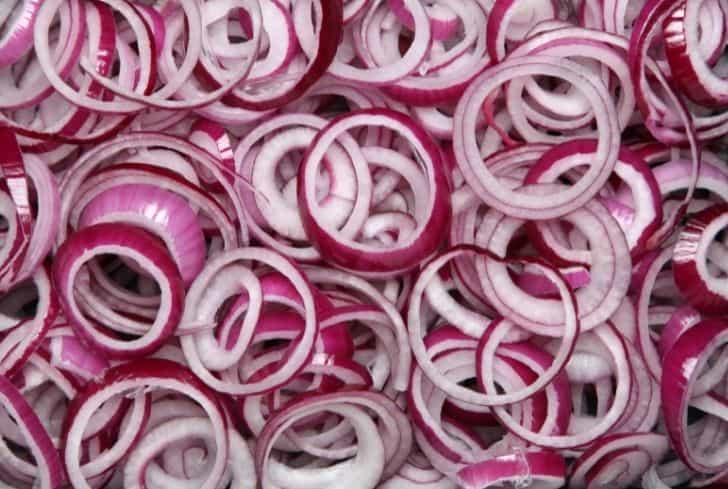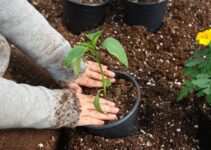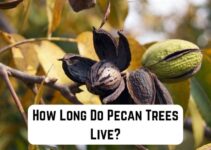They say love can make you feel so good and so bad almost at the same time. It is a bitter-sweet feeling that cannot be explained and cannot be felt anywhere else. Well, onions come close to mimicking this relationship. Chopping onions causes watery eyes, although they have also been associated with potential health benefits like reducing the risk of some cancers.
This everyday-use vegetable is renowned all over the world and comes in different sizes, shapes, colors and flavors. They have been cultivated for centuries and are some of the oldest vegetables known to man. Since onions can also go bad, what should you do with them? Should you throw them away? Well, composting onions them might be an alternative, and this forms the basis for this article.
Can You Put Onions in Compost?
Simply put, yes, you can compost onions. These bulbous vegetables can be composted as they are a primary source of organic matter, like any other vegetable. However, some caveats exist.
Compostable onions depend on what type of onion waste you are thinking of putting in your compost bin. Also, some composting methods will be more effective than others when it comes to composting onions.
First, onions have a strong odor, and they tend to be more pungent as they rot. To alleviate these odors in an open compost bin, you can bury the onions under about 12 inches of other materials in the bin. Also, adding shredded paper or cardboard is another valuable aid to combat smelly compost. However, be careful to cover them up again when you turn your pile.
Secondly, onions have a relatively low pH, making them acidic, which is probably why most people argue against composting them. As a result, they have an inhibiting effect on good bacteria, which makes them take longer to compost. With that said, the majority of common sense composters add onions to their bins without any adverse effects.
Therefore, as long as you are not adding excessive amounts, the “negative” properties of onions will be balanced out by the rest of the rotting material. The acidifying effects of onions are balanced out by the other material you mix in the composting bin.
When compost onions, the general advice is to cut whole onions up before putting them into compost. If you throw them whole, they will just continue to sprout while in the compost, rather than decomposing.
If you forget about them long enough, onions will try to reproduce, which is why you see them sprouting, and by chopping them up, you will stop them from growing inside your compost bin.
The other reason behind cutting them up is that smaller pieces will decompose quite easily and more quickly. Cutting them into smaller pieces, therefore, helps along with the decomposition process.
However, at all costs, avoid diseased onions as the disease may be reintroduced back into your soil when you apply the compost. Avoid a crop of onions ruined by a pathogen like a leaf blight, onion mildew, or white rot, and instead, dispose of them in another way.
Can You Compost Onion Peels?
Absolutely! Onion skins and peels are a normal part of the general household kitchen waste when you cook. They should therefore be composted without any kind of pre-treatment.
Onion skins and scraps do not negatively affect the microbes present in your compost pile. Onion skins and wastes do not result in the growth of more onions, but they may add an unpleasant aroma to the pile and lure pests or wildlife. Like with onions in general, bury the onion peels some inches inside the compost pile.
This helps with the composting process in terms of speed and hides the smell of the delicacies from the creepy crawlies. Take caution when turning your compost pile, as the possibility of an unsavory aroma of rotting onion may stop you in your tracks for a moment.
And if the odor is your primary concern, add some crushed oyster shells, newsprint or cardboard, which aid in eliminating or, at the very least, controlling the noxious smells.
Can You Compost Spring Onions?
Yes, you can compost spring onions. Not much is known about composting onions, but several rules apply. First, anything that can be eaten can be composted. Spring onions grow well in almost every climate, and their versatility in the kitchen makes them an invaluable addition.
Secondly, they can be regarded as a close relative of the bulb onion, and once again, we go back to the rules about composting onions. Spring onions are leafy, for lack of a better word, making them an excellent addition to the composting bin as a ‘green’ component. Since they grow reasonably close together, weeds can be a problem.
On the other hand, they can repel pests from the garden. For instance, they can help deter carrot fly from carrots and have the same effect on the whitefly when you plant spring onions around the base of tomato plants. As such, it is safe to conclude that spring onions can offer similar defensive aid while in the composting bin.
Can You Compost Rotten Onions?
Of course, yes! The science behind composting is that materials rot and decompose in a controlled place so that they may be added back to the soil and provide nutrients to the soil and crops. With rotten onions, you are already halfway there. They will offer the same properties to the compost and subsequently the soil as if they were not rotten.
The single downside to having rotten onions is their stench. However, this can be countered by adding crushed oyster shells, newsprint or cardboard, to aid in eliminating or, at the very least, controlling the noxious smells.
The same rules apply as if it were a whole onion: chop the rotten pieces into smaller pieces to expedite the process. Also, bury them at the center of the pile, for similar reasons, as well as to keep the rodents away.
Can You Compost Cooked Onions?
You should avoid composting cooked onions. The problem with cooked onions is that they have been heated in fat. Generally, compost heaps have difficulty breaking down anything that contains grease and fat.
The fat can also spread over other materials and prevent them from composting correctly. Additionally, the smell of food cooked in fats can also attract pests such as rodents. These uninvited guests will make a mess of your pile and your compound.
If you decide to compost cooked onions, you run several risks.
First is the foul smell that comes off from decomposing fats. Plant scrap might not smell as much as meats, fats and dairy, but they will stink nonetheless.
Secondly, they attract pests like rats, bees, bears, biting fleas and other scavengers, which might cause a lot of problems for your compost.
Thirdly, they can turn to compost gross really quickly, which is unpleasant and interferes with the proper aeration inside the composting bin.
Also, the compost might go anaerobic, which is a result of decomposing fats where anaerobic bacteria is released and is the archenemy of a normal, aerobic compost pile. These bacteria can interfere with the composting process and cause problems with odors and acidity.
7+ Clever Ways To Reuse Onion Scraps
1. Regrow onions
Yes, you can regrow an entire onion from its bottom. First, cut off the root end about 0.5” to 1” thick at the thickest part. This ensures that several healthy stems will start to grow from the onion bottoms, and each stem will have the potential to grow into a fat onion bulb.
Next, let the onion scraps grow roots by placing them upside-down in a pot filled with damp soil. Cover the pot with a thin layer of soil at the top, and they will grow the roots within three weeks. Next, regrow the onions in pots or garden beds.
2. Reduce cramping
Some people say that they have successfully prevented leg cramps by drinking an infusion of onion skins. To make the infusion, boil onion skins in water for up to 20 minutes, strain the skins out and let them cool. Drink some of the infusion as a tea before bed to help avoid those nasty middle-of-the-night cramps.
3. Make stock
Rather than tossing out onion skins and other vegetable scraps, keep them and use them to make your own vegetable stock. Including onion skins in your homemade stock will add a deliciously rich onion flavor, as well as some immunity-boosting properties present in onions.
When your stock is done, just pour it through a fine-mesh sieve to strain out all the onion skins and other scraps. Not only will your finished stock surely have that tremendous homemade flavor, but it is also a great way to save money too.
4. Make onion skin fertilizer
Do not throw away the onion skins, but rather, use them to create organic potassium-rich fertilizer for all your plants growing indoors or outdoors. Using it will increase their disease resistance, growth, strong stems, and productivity. This onion skin fertilizer is also rich in iron, copper, calcium and magnesium.
5. Make an onion skin dye
You can make a natural dye from both the red and yellow or brown onion skins for things like Easter eggs, threads and fabric, among others. The entire process is a bit lengthy and can be found on Food 52‘s website.
However, the summary is that you will boil the skins for about an hour and let them soak overnight. Then, you will soak your natural fabric in warm water for the dye to enter evenly.
Then, strain out the onion skins from the bath and add your pre-wet material to the bath and boil it for another hour. Let the fabric soak in the dye bath overnight and rinse your fabric the next day in cold water until the water runs clear.
6. Enriching rice
Add some onion skins to your pot of cooking rice to give it an extra boost of nutrients. Be sure to use big pieces of skin as they are easy to pluck out from the rice when you are done cooking.
7. Add to bread
You can finely mince some onion skins until they resemble a powder. Add one teaspoon of the fine powder to your bread dough the next time you make homemade bread. It can be calculated as a clever way to sneak some of those beneficial properties of the onion into your diet. Additionally, it adds a nice hint of savory flavor as well.
8. Mulching your garden
Rather than composting the onion skins, you can also send them to the garden directly as mulch. Use the leftover skins as mulch, and the dry peels will decompose soon and enrich the soil with calcium and potassium.






